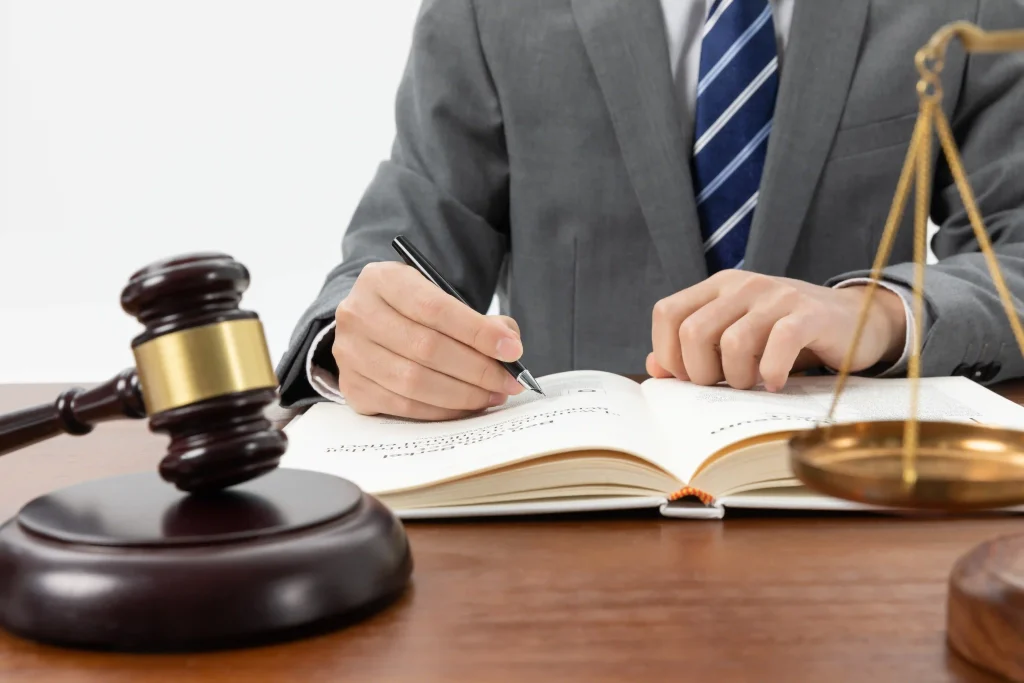
Understanding Virginia debt collection laws and your rights is crucial. These laws are designed to protect consumers from unfair and deceptive practices by debt collectors. In this article, we will break down your protections under both federal and Virginia-specific laws, explain prohibited practices, discuss how you can dispute debts, and explore what you can do if a collector violates these laws.
Key Takeaways
- ➡️ Virginia debt collection laws protect consumers from harassment and abusive practices by outlining specific rights and procedures for disputing debts.
- ➡️ Consumers can file complaints against violating debt collectors and may sue for damages under the Federal Fair Debt Collection Practices Act (FDCPA) if they experience abusive tactics.
- ➡️ Understanding the statute of limitations on various debts in Virginia helps consumers determine if a debt is legally collectible and informs their strategy when dealing with collection efforts.
Understanding Virginia Debt Collection Laws
Virginia Debt collection laws streamline the process of collecting unpaid debts while safeguarding consumer rights. These laws ensure that debt collectors stay within legal boundaries and prevent unfair or deceptive practices. Knowing these regulations can help you interact with debt collectors more confidently and protect your financial health.
Virginia law protects consumers against unfair debt collection practices and outlines specific rights to dispute debts. The Federal Fair Debt Collection Practices Act (FDCPA) also governs debt collection practices, ensuring fair treatment of debtors. Together, these federal debt collection laws form a comprehensive system to shield consumers from harassment and abuse by debt collectors.
This section explores the FDCPA, Virginia debt collection laws, and prohibited practices, giving you a solid foundation to understand your rights and the limitations on debt collectors.
Federal Fair Debt Collection Practices Act (FDCPA)
The Federal Fair Debt Collection Practices Act (FDCPA) is a cornerstone of consumer protection in debt collection. Enacted to curb abusive, deceptive, and unfair practices, the FDCPA provides protections for consumers dealing with debt collectors, ensuring they adhere to ethical standards.
Under the FDCPA, debt collectors cannot use threats, harassment, or deceptive means to collect debts. This includes restrictions on contact times (8 AM to 9 PM) and requires clear information about the debt, including the amount owed and the original creditor’s identity.
The FDCPA generally applies to third-party debt collectors, not to creditors collecting their own debts unless they present themselves as collectors. This distinction determines the scope of protections available to consumers under this federal law.
Virginia-Specific Debt Collection Laws
Besides the FDCPA, Virginia law offers specific regulations to shield consumers from unfair debt collection practices. Debt collectors cannot misrepresent legal processes to mislead consumers, ensuring transparency and honesty, and prohibiting the use of fake legal documents or misleading communications.
Virginia has also introduced protections for medical debts. Effective July 2026, a new law will prohibit extraordinary collection actions for 120 days after a medical bill’s due date, giving consumers time to address their medical debts without immediate pressure.
These protections aim to shield consumers from aggressive collection practices and ensure fair treatment in handling medical debts.
Prohibited Debt Collection Practices
Virginia law strictly prohibits certain debt collection practices to protect consumers from abuse and harassment, including:
- ➡️ Using fraudulent legal documentation to collect debts
- ➡️ Ensuring all communications are honest and transparent
- ➡️ Prohibiting documents that resemble official legal papers as a deceptive tactic under Virginia statute
Debt collectors are also prohibited from using threats or abusive tactics. They cannot threaten violence, use obscene language, or repeatedly call consumers to harass them. Such actions are unethical and illegal under both Virginia law and the FDCPA.
Violating Virginia debt collection laws can have serious consequences for debt collectors, classified as a Class 4 misdemeanor, resulting in fines and other legal penalties. These stringent measures ensure consumers are protected from unfair and deceptive practices.


Your Rights Under Virginia Law
Consumers in Virginia have specific protections against harassment from debt collectors, ensuring fair treatment during the debt collection process. These rights provide tools to manage and dispute debts effectively while maintaining privacy and dignity.
Key rights under Virginia law include disputing a debt, requesting validation, and maintaining privacy. These protections allow consumers to challenge the validity of a debt, demand verification from debt collectors, and avoid harassment through unwanted or excessive communication regarding claims.
Right to Dispute a Debt
Virginia law allows consumers to formally challenge the validity of a debt. Once a debt is disputed, collectors must cease collection activities until they provide verification. This process ensures consumers are not unfairly pursued for incorrect or invalid debts.
To dispute a charge, consumers must provide a writing explanation to the creditor. This triggers the requirement for the debt collector to halt further collection efforts until the debt is verified, protecting consumers from ongoing harassment.
Right to Request Validation of Debt
Consumers can request validation of a debt within 30 days of initial contact with a debt collector. Upon request, collectors must provide detailed information confirming the debt’s legitimacy, including the original creditor’s name and the amount owed.
This validation process ensures consumers are only held accountable for legitimate debts. It compels collectors to furnish accurate documentation and prevents them from collecting on unsubstantiated debts through the legal process.
Right to Privacy
Virginia law includes specific protections against harassment from debt collectors, particularly regarding contact times and methods. Collectors are restricted from contacting consumers at inconvenient times, typically before 8 AM or after 9 PM.
These regulations ensure consumers are not subjected to undue stress or harassment during the debt collection process.
Legal Actions Against Violating Debt Collectors
If a debt collector violates Virginia debt collection laws, consumers have several legal options, including filing a complaint with regulatory bodies and suing for damages. Legal action can hold collectors accountable and potentially provide financial compensation for harm caused by abusive practices.
Consumers can respond in court if sued by a debt collector and have the right to hire an attorney for their defense. Even if a lawsuit is filed, they can still attempt to reach a settlement for the debt outside of court, and they may also contact the state attorney general’s office for assistance.
The statute of limitations can serve as a defense if it has expired on the past debt in question.
Filing a Complaint
Consumers can file a complaints against debt collectors with the (CFPB) or their state’s attorney general’s office. Reporting violations is crucial for protecting consumer rights and holding collectors accountable.
Consumers can also report suspicious debt collection practices to the Federal Trade Commission (FTC) and other relevant federal agencies and collection agencies. These agencies can investigate complaints and take action against violators.
Suing for Damages
Victims of abusive or deceptive collection behavior can sue under the FDCPA. Compensation may include actual damages, statutory damages up to $1,000, and legal fees.
Many lawyers work on a contingency fee basis, meaning they only get paid if you win your case. This makes it more accessible for consumers to seek legal redress without the burden of upfront legal fees.


Statute of Limitations on Debt Collection in Virginia
The statute of limitations sets the maximum period during which creditors can file a lawsuit to collect a debt. In Virginia, this ranges from two to seven years, depending on the type of debt. Understanding these limits helps consumers determine if a debt is still legally collectible.
Different debts in Virginia have varying statutes of limitations based on the nature of the contract. For example, the statute of limitations for credit card and medical debts is typically three years from the last payment or activity.
This section explores these time limits in more detail and explains the impact of expired statutes on debt collection efforts.
Time Limits for Different Debts
The statute of limitations for different types of debts in Virginia varies. For credit cards and medical debts, it is generally three years from the last payment or activity. Mortgages have a five years statute of limitations, starting from the end of the Deed of Trust.
These time limits set the maximum period during which creditors can file a lawsuit. Understanding these limitations helps consumers determine if a debt is time-barred and not legally enforceable.
Impact of Expired Statutes
When the statute of limitations on a debt expires, it does not automatically erase the debt. It limits the creditor’s ability to sue for collection. Creditors can still attempt to collect, but consumers can use the expired statute as a legal defense if sued.
Consumers should understand their old debt circumstances and seek advice from reputable debt relief agencies if they believe the statute of limitations has expired. Making a payment plan can reset the statute of limitations, so being fully informed before taking action to repay is crucial.
Handling Medical Debts in Virginia
Medical debts can be particularly challenging due to their often unexpected and significant amounts. Virginia law mandates that large healthcare facilities provide financial assistance information to patients before taking extraordinary collection actions. This ensures patients are aware of their options and can seek help before debts escalate.
Virginia’s upcoming regulations, effective July 2026, aim to safeguard consumers from aggressive collection practices for medical debts. Understanding these protections and negotiating medical debt can help manage healthcare expenses more effectively.
New Medical Debt Protections
Virginia will soon implement protections to shield consumers from certain collection practices related to medical debts. Medical creditors must notify patients at least 30 days before initiating extraordinary collection actions, giving them time to explore financial assistance options. Additionally, the new law limits interest rates on medical debts to no more than 3% annually.
These protections also prevent medical debt collectors from selling debts without agreements that prohibit aggressive collection tactics. This comprehensive approach ensures consumers are treated fairly and can address their medical debts without undue pressure.
Negotiating Medical Debt
Negotiating medical bills directly with providers can significantly lower the total amount owed. Many hospitals offer discounts or forgiveness based on financial need, which can save you money. Engaging a patient advocate can assist in negotiating bills and obtaining financial aid.
Patients should consider the following steps before they negotiate medical bills:
- ➡️ Review their medical bills for errors, as inaccuracies can be leveraged for reductions.
- ➡️ Understand the financial assistance policies of medical providers.
- ➡️ Verify eligibility for government programs such as Medicaid to aid in negotiating lower payments for medical debt.
Post-Judgment Debt Collection Actions
If a judgment debtor does not voluntarily pay the judgment, debt collectors can take various post-judgment enforcement actions, which may include:
- ➡️ Wage garnishment
- ➡️ Bank account levies
- ➡️ Property liens All of these actions require a court order. Understanding these methods can help consumers prepare for potential collection efforts and take appropriate legal steps to protect their assets.
Debt collectors can also file Debtor Interrogatories to discover a judgment debtor’s assets. A debtor’s refusal to appear for these interrogatories can lead to serious consequences, including potential bankruptcy. They may be held in contempt of court.
This section will explore each post-judgment action in detail.
Wage Garnishment
In Virginia, creditors can initiate wage garnishment by obtaining a court order specifying the garnishment terms. The amount that can be garnished is generally limited to 25% of disposable earnings or the amount exceeding 40 times the federal minimum hourly wage, whichever is less.
Wage garnishments can be refiled every 180 days until the debt is paid in full, ensuring continuous collection efforts until the obligation is settled. Understanding these limits can help debtors plan their financial strategies accordingly.
Bank Account Levy
To levy a bank account in Virginia, creditors must:
- ➡️ File a Suggestion for Summons in Garnishment with the Clerk of Court.
- ➡️ Obtain a court order.
- ➡️ Seize unprotected funds in the judgment debtor’s bank account.
This process can potentially freeze the account until the debt is satisfied. It allows creditors to directly access funds in a debtor’s bank account, providing an effective means of collecting on a judgment.
However, it also underscores the importance of understanding one’s rights and the potential affirmative defense subject in such situations.
Property Liens
A judgment lien in Virginia is a legal claim against real estate owned by the debtor, allowing the creditor to secure a debt owed. These liens can be attached to various types of real estate, including houses, condos, land, or similar property interests.
Judgment liens are recorded with the local court, ensuring they are enforceable against the debtor’s property. This action can significantly impact a debtor’s ability to sell or refinance their property until the debt is resolved.


Seeking Legal Assistance
Navigating debt collection issues can be complex, and seeking legal assistance is often advisable. Consulting a lawyer can help you understand your rights under Virginia debt collection laws and provide guidance on the best course of action. Whether you need to initiate a lawsuit regarding FDCPA violations or require help dealing with debt collectors, legal counsel can be invaluable.
In this section, we will discuss how to find a qualified lawyer and the potential costs associated with legal assistance. This information can help you make informed decisions about seeking legal help for your debt-related issues.
Finding a Qualified Lawyer
Finding a qualified lawyer is crucial for effectively navigating debt collection issues. You can consult local bar associations for lists of qualified consumer protection attorneys in Virginia. When searching for a lawyer, consider their experience and specialization in debt collection and consumer protection law.
Look for a lawyer licensed with specific experience in debt-related issues to ensure they have the expertise needed to handle your case. This can significantly impact the outcome of your legal efforts and provide you with the best possible representation.
Legal Fees and Costs
Legal fees are an important consideration when hiring a lawyer for debt-related matters. Some attorneys offer free consultations to discuss your debt situation before charging a fee. The hourly rate for a debt collection defense attorney in Virginia averages around $285, though this can vary based on the attorney’s experience.
Some attorneys may provide unbundled legal services, allowing clients to pay only for specific tasks rather than the full scope of representation. Understanding these options can help you manage legal costs and make informed decisions about seeking legal help.
Protecting Yourself from Debt Collection Scams
Being cautious and informed can help you avoid falling victim to fraudsters posing as debt collectors. Scammers often use threats, deception, and high-pressure tactics to trick consumers into paying debts they do not owe. Recognizing the signs of a scam and knowing how to report suspicious activities are crucial steps in protecting yourself.
In this section, we will cover common red flags of debt collection scams and the process for reporting them. This information will help you stay vigilant and take appropriate actions to safeguard your financial information.
Recognizing Red Flags
Key indications of a scam include:
- ➡️ The collector’s refusal to disclose their identity or the details of the debt.
- ➡️ Demands for immediate payment.
- ➡️ Requests for unconventional payment methods such as gift cards.
- ➡️ Threats of arrest.
- ➡️ Refusal to provide debt information.
- ➡️ Demands for personal financial details.
Being aware of these red flags can help you identify and avoid debt collection scams. Always verify the legitimacy of the debt and the identity of the collector before making any payments.
Reporting Scams
Reporting scams not only helps protect your information but also aids in combating fraud on a larger scale. If you suspect a scam, verify the debt with the original creditor before making any payments.
You can report scams to the Federal Trade Commission (FTC), the (CFPB), and your state’s attorney general’s office. These agencies can investigate and take action against fraudulent debt collectors, helping to protect other consumers from similar scams.
Summary
In summary, understanding Virginia debt collection laws is essential for protecting your rights and managing your financial health. From knowing your rights under the FDCPA and Virginia-specific laws to handling medical debts and recognizing scams, being informed is your best defense against unfair debt collection practices. Stay proactive, seek legal assistance when needed, and always verify the legitimacy of any debt you’re asked to pay.


Consumer Rights Law Firm PLLC
If you’re dealing with aggressive or unlawful debt collection tactics, you’re not alone. Virginia has strong laws in place, along with federal protections, to shield consumers from harassment, intimidation, and unfair collection practices. Whether you’re facing constant calls, misleading statements, or improper third-party disclosure, you have rights that debt collectors must respect.
At Consumer Rights Law Firm PLLC, we help Virginia consumers stop abusive or illegal collection behaviors. Our attorneys understand the state’s debt collection laws and use that knowledge to protect you from harassment and ensure your rights are fully enforced. Since 2010, we’ve helped thousands of clients restore financial peace and hold collectors accountable, and we maintain an A+ rating with the Better Business Bureau.
If you want to learn more about Virginia debt collection laws and your rights, contact our office today. Call (877) 700-5790 for immediate assistance or visit our website to get started.
Success Stories
- This firm will not disappoint! Scott does not sleep, I’m convinced of it. You can text/call about the issues you’re facing and you will always get a quick response. They’re handling multiple cases with resolutions for me already. I was afraid to try thinking nothing would come of it or an attorney trying to sell pipe dreams, I was wrong. This is the one to try. They will stop the harassment⭐⭐⭐⭐⭐
- I reached out needing help. Scott contacted me right away and reassured me everything was going to be ok. And took care of all my worries. He was an amazing help and I’m grateful for his service. And they guaranteed I would not have to pay a dime. Very thankful.⭐⭐⭐⭐⭐
- Derek and Matt, are some of the best people I’ve ever met. I had a bad situation which they were quickly able to help get resolved. The open communication and fast response time, along with their patience and vast knowledge really helped ease my mind and confirm I made the right choice. Thank you Consumer Rights Law Firm!⭐⭐⭐⭐⭐
Frequently Asked Questions
- What protections do I have against debt collectors in Virginia?
In Virginia, consumers are protected by the federal Fair Debt Collection Practices Act (FDCPA), and there is also a state criminal statute that prohibits debt collectors from mimicking legal process. - What does the Virginia criminal debt collection law prohibit?
Virginia law forbids debt collectors from imitating court documents or legal process — for example, sending notices that look like a warrant or court papers — to scare consumers into paying. - Can I sue a debt collector in Virginia if they violate my consumer rights?
Yes, if a debt collector violates the federal FDCPA, you can bring a lawsuit to recover damages, attorney’s fees, and court costs. - How long is the statute of limitations on debt-collection lawsuits in Virginia?
In Virginia, the statute of limitations is generally 5 years for written contracts and 3 years for oral contracts or open-ended accounts. - Can a debt collector obtain a wage garnishment in Virginia?
Yes — but only after they get a court judgment. Without a judgment, they typically cannot garnish wages. - What happens under Virginia’s new medical debt law?
Starting July 1, 2026, Virginia will limit aggressive collection of medical debt: for example, no liens or wage garnishment in the first 120 days for certain patients, and interest or late fees capped at 3%. - How can I dispute a debt with a collector in Virginia?
Under the FDCPA, you can ask for a written “validation” of the debt, and the collector must provide details about the original creditor, amount owed, and any fees. - Are debt settlement companies regulated in Virginia?
Yes. Virginia regulates debt settlement services, and companies offering these services must comply with licensing and consumer protection rules under Title 6.2, Chapter 20.1. - What collection techniques can Virginia state agencies use?
Under Virginia law (Va. Code § 2.2-4806), state agencies can use credit reporting, collection agencies, liens, garnishments, judgments, administrative offset, and other tools. - How do I report a debt collector for violating Virginia’s laws?
If a collector violates the FDCPA, you can take legal action in federal court. For state-level violations (such as imitating legal papers), you can report them to local law enforcement, because such acts may be prosecuted as a misdemeanor.




